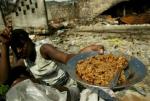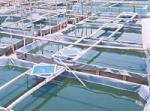Haiti Food Security Update (5/11/2008)
 Below is an update concerning food security in Haiti. First though, I read an interesting article in the Miami Herald about the critical role of coordination in Haiti relief efforts. In fact, it notes that an uncoordinated flow of aid can cause harm, particular in a setting like Haiti where food is plentiful on store shelves but most people can't afford it because of high unemployment and global price hikes. The best way to help Haiti right now is to contribute to both the organizations that can make a difference now and those that can help Haiti become self-reliant over the long-term.
Below is an update concerning food security in Haiti. First though, I read an interesting article in the Miami Herald about the critical role of coordination in Haiti relief efforts. In fact, it notes that an uncoordinated flow of aid can cause harm, particular in a setting like Haiti where food is plentiful on store shelves but most people can't afford it because of high unemployment and global price hikes. The best way to help Haiti right now is to contribute to both the organizations that can make a difference now and those that can help Haiti become self-reliant over the long-term.











